A battle is brewing over Portola Valley's state-mandated housing document, which must spell out the locations for possible new hosuing between 2023 and 2031. Attorney and former San Jose Mayor Chuck Reed filed a huge Public Records Act (PRA) request for all documents and communications related to a town committee's work, and the town's mayor alleging that the Nathorst neighborhood homeowners he represents threatened to sue the town, according to Portola valley Mayor Craig Hughes.
A number of Portola Valley residents have been vocally opposed to any new development in town, over concerns about sullying the town's rural character and increasing risk by building more homes in a region that is already at a heightened risk for wildfires.
Reed, now an attorney with the Silicon Valley law firm Hopkins and Carley where he serves in the real estate practice, requested information on the housing element process on Friday, March 18, on behalf of Portola Valley residents Robert and Karen Allen.
The Allens, along with several other neighbors, wrote to the Town Council on March 11 to say that they oppose the potential upzoning, allowing for more dense housing to be built in parts of the Nathorst neighborhood. According to a March 14 letter to the town's Ad Hoc Housing Element Committee, Reed said that the town's current approach of relying on the rezoning of owner-occupied homes is "contrary to the state statutory requirements," and will not be approved by state officials.
"I understand how hard it is to comply with state law when your community is opposed to what the state makes you do. However, the state law must be followed, Reed wrote.
"The sites in your inventory of land suitable for residential development must have a 'realistic and demonstrated potential for redevelopment during the planning period.' The Allens have submitted clear and convincing evidence that their family home is not and will not be available for any development during the planning period. Their home has zero demonstrated potential for development. The town cannot include their property in the town's inventory."
Mayor Hughes said that Robert Allen told him on March 20, meeting that if the town were to rezone his property, he and his neighbors intend to sue the town, according to Hughes. Allen also threatened to hire lobbyists to urge the State Department of Housing and Community Development (HCD) to reject the town's housing element, according to Hughes.
When asked directly to confirm Allen's alleged statements to Hughes, Reed replied: "Mr. Allen will vigorously assert his legal rights to protect his family and to make sure the town follows state law. That may include informing the HCD of violations of state law by the town. If the mayor and council choose not to follow the law, they will be responsible for the financial impacts on the town."
What the zoning change could mean
A town staff report notes that, typically, when a jurisdiction rezones occupied land from its existing use to another use, the existing use is deemed "legal-non-conforming." This means the existing use is allowed to continue, subject to some limitations, including a prohibition on rebuilding from scratch or adding more space.
It does not mean that people will be forced to move out of their businesses or homes.
For example, if a parcel of land is rezoned from single-family to multi-family use, an existing single-family home may typically be repaired and maintained, but cannot add square new footage, according to the report. A related caveat is that the structure cannot be demolished and rebuilt; any new structure must conform to the new multifamily use zoning.
The scope of the document request had Town Attorney Cara Silver offering an apology to the Town Council and the 14-member committee, stating in an email that town staff was sorry "that volunteer committee members are being subject to these types of tactics."
"It is especially disappointing that this request comes from a former mayor of San Jose who should know that small cities are under-resourced and have few staff members available to comply with this type of broad request," she said. "It is also unusual that this request is directed at volunteer committee members who are simply trying to comply with state law housing mandates."
She acknowledged that the town is required to comply with the request "regardless of its motives, and we encourage each of you to do the same."
Reed, who was mayor of San Jose from 2007 to 2014 and a member of the San Jose City Council from 2000 to 2006, is asking for:
• All documents that have been provided to the town Ad Hoc Housing Element Committee
• All town communications regarding the housing element since July 1, 2021, including communications among elected officials, staff, consultants or members of the committee, like emails and text messages, including on personal devices.
• All documents, including studies, analyses, consultant contracts and communications, regarding the land inventory of the housing element for all properties being considered for inclusion in the inventory of land suitable for residential development.
The committee, which formed last August, only began in late February to discuss what areas of town that could be rezoned to meet the town's state-mandated Regional Housing Needs Allocations, or RHNA for short, which is 253 units for the 2023-31 cycle. The planning department recommended areas of town based on seismic and fire safety considerations, slope and evacuation maps. The town also conducted a survey last month to gauge how residents would like to see housing developed in Portola Valley. Multiple areas of town are being considered for rezoning.
Nathorst neighbors' object
The Allens told the Town Council in a letter that their family home "is not and will not be available for any development during the planning period. Our home has zero demonstrated potential for development."
James and Susan Koblick, also of Nathorst, wrote to the council that they felt "blindsided" by potential upzoning of their property.
Part of the neighbors' ire might stem from a flier being distributed around town that states the "actual density" of new units in the Nathorst neighborhood would be three- to four-stories high. This is not true, as the committee has not specified how tall the buildings would be if the area were to be rezoned. It's unclear who is distributing the fliers.
"In a recent email to the Town Council dated March 20, Robert Allen writes, 'The town can use positive energy to solve this,' referring to the task of finding ways to accommodate our RHNA number of 253 housing units," said council member Maryann Derwin in a statement. "Correct me if I'm wrong, but hiring an attorney to slap us with a massive PRA doesn't really create a lot of positive energy."
"In my experience, whenever a controversial item is discussed on a City Council, lots of ideas both reasonable and far-fetched are explored in the public dialectic," she went on. "In this robust process, the people's voices are heard, all manner of remedies are explored, and eventually resolutions that most people can live with present themselves."
She questioned what can be discovered in the "burdensome wild goose chase of a PRA request" that hasn't already been discussed at Portola Valley Town Council, Planning Commission, Housing Element Committee, or other public meetings, or contained in housing law.
"I truly fear that the motive is darker; an attempt to inconvenience, punish, embarrass public officials, volunteers and staff, eat up staff time and delay the adoption of the housing element," she said.
Portola Valley's process for developing its housing element process has drawn great attention -- at the housing element committee's most recent meeting, 150 people attended. The meeting lasted nearly six and half hours because of the volume of public comments.
Derwin said the content in the committee meetings is so rich it could be a graduate-level course in housing law. The committee has met eight times since it formed in August 2021.
"Nobody is doing anything close to this in the county," she said. "Nobody has educated the community this thoroughly. … No matter how much we do it is not enough. We're not doing what they want us to do, which is to fight the housing mandates."
Vice Mayor Wernikoff, a member of the ad hoc committee, said the town is working to find a way to designate more spaces in town for housing, while maintaining open space and "scenic corridors."
The town could face fines, between $10,000 and $600,000 per month, and lose state funding if it fails to adopt a housing element, which is due in January, according to a town staff report. It could also lose state grants.
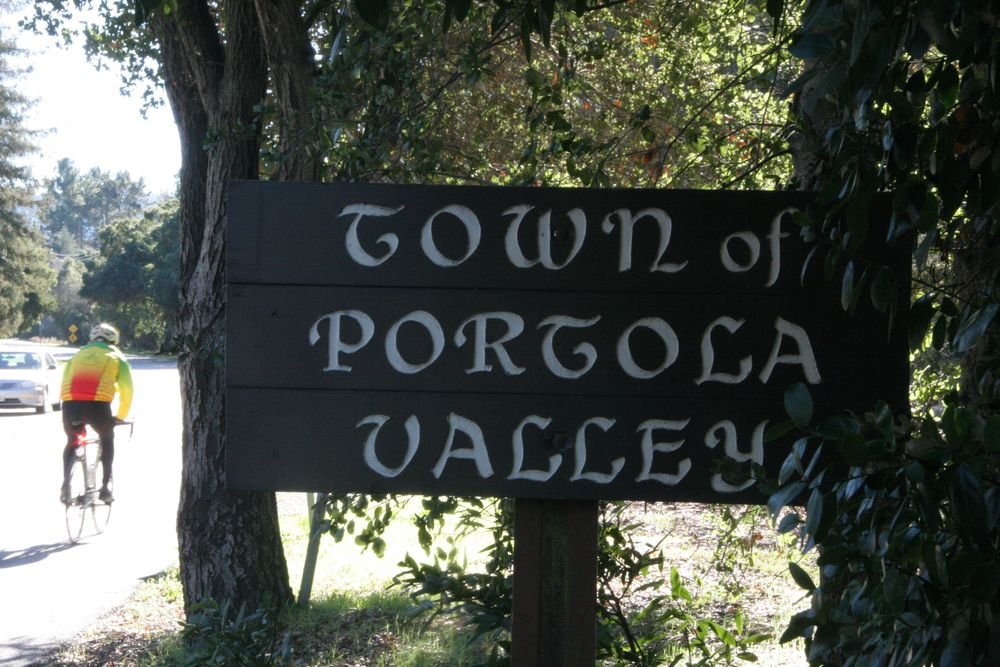

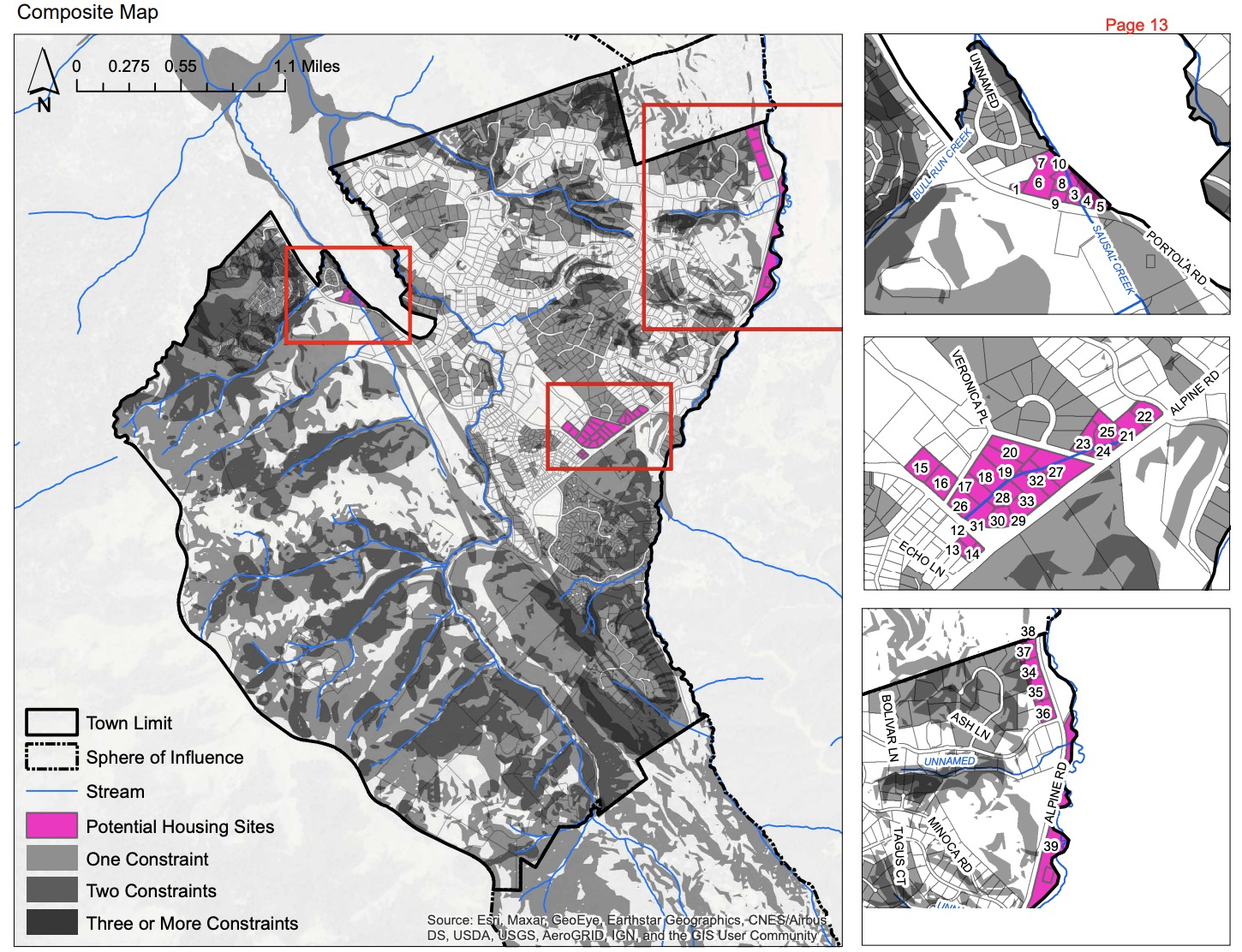
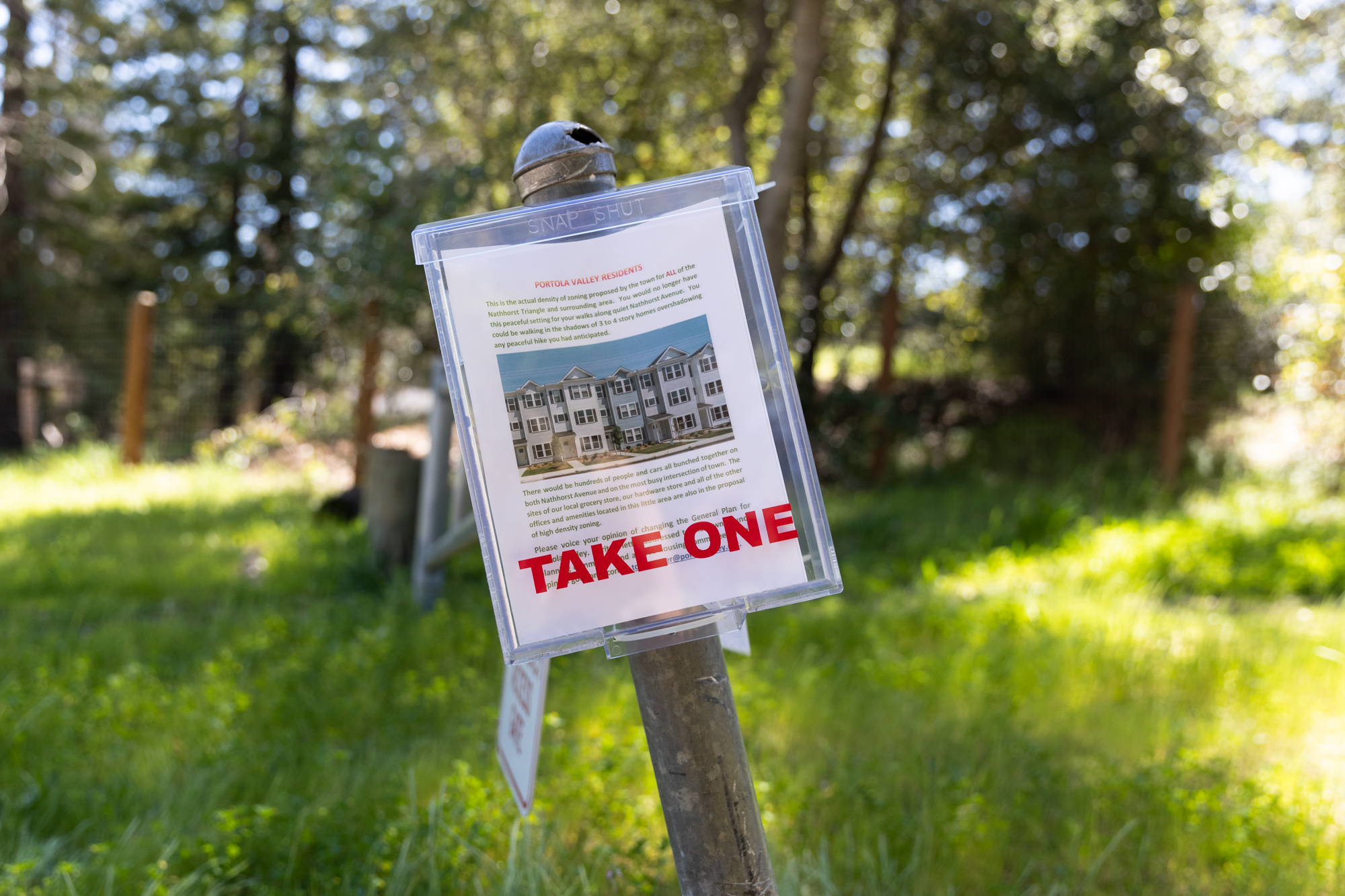
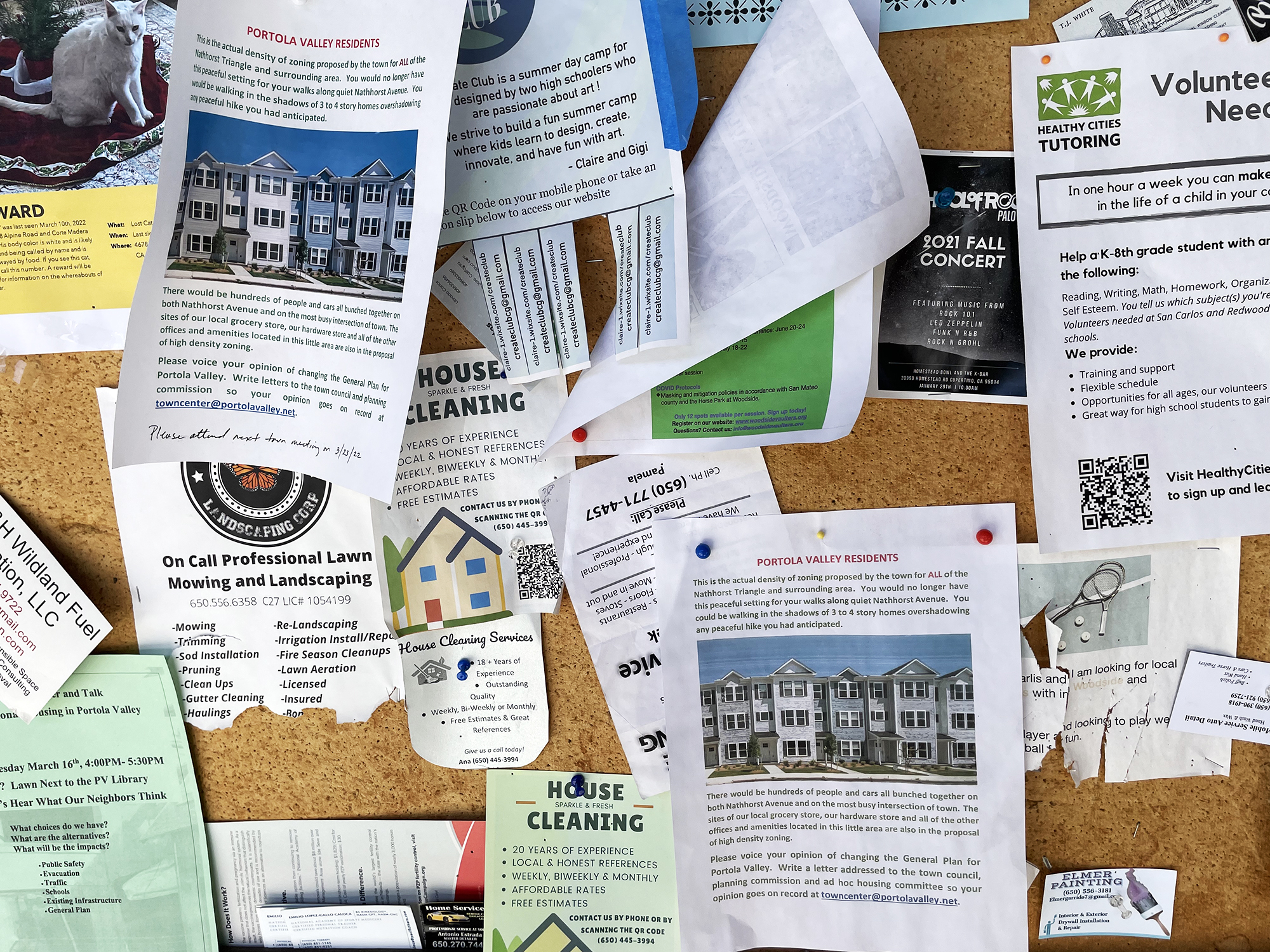
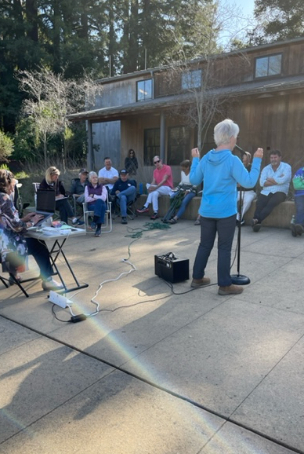

Comments
Registered user
Portola Valley
on Mar 25, 2022 at 3:26 pm
Registered user
on Mar 25, 2022 at 3:26 pm
This is the same misleading 'article' posted in The Almanac (another Embarcadero Media publication) the evening of March 21st. I put the word article in quotes because even though it is identified as 'News' it should properly be identified as 'Opinion'.
If you go to the Almanac version you'll find a flood of comments showing and explaining the gross distortions alluded to in the 'editorial'. [Portion removed.] Yes, she went to Mayor Hughes and the plaintiff's lawyer for comment, but more importantly did she interview any of the 19 residents threatened with R3 zoning? I think you can guess that the answer is no. Mayor Hughes also referred to a group trying "bankrupt" the town. There were 14 people in this Meet the Mayor (called Donuts) meeting, and to a person not one of the 13 saw the threat highlighted in this article. Further, did the reporter try to interview ANY of the 13 attendees besides the Mayor. Again, you know the answer - NO.
Even in highly biased media publications there are a few lines providing another point of view from an interested group. I invite you to go back and read this editorial identified as news to see what you think. While you expect strong bias in editorials, most of us do not expect that in 'News' articles. [Portion removed.] This is not news, it is opinion.
Registered user
Green Acres
on Mar 25, 2022 at 5:51 pm
Registered user
on Mar 25, 2022 at 5:51 pm
This is Silicon Valley. We are all educated and competent in dealing with workflow. Transparency in government - the expectation of open meetings and public access to government communication and deliberations - is likewise longstanding. Even such a document request as that described here should be easy to satisfy by any competently-run group. It's not like they need to annotate anything -- just mail a USB stick with however many gigabytes of stuff there is.